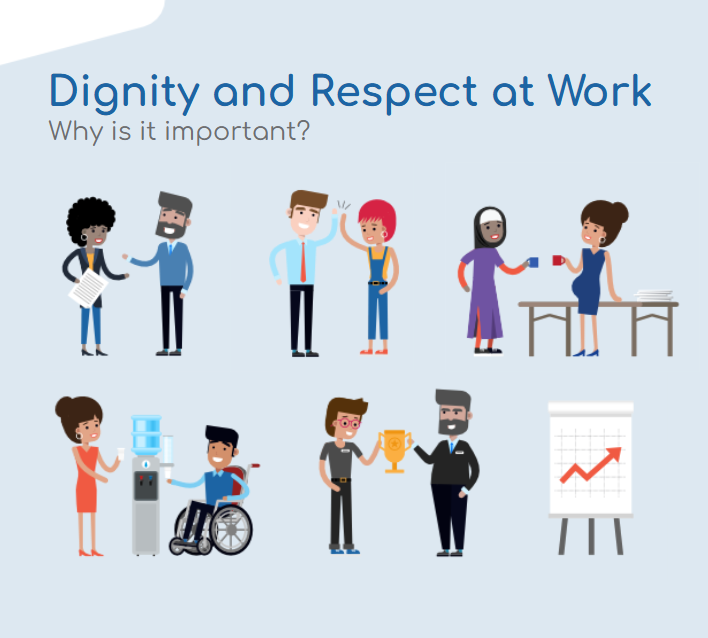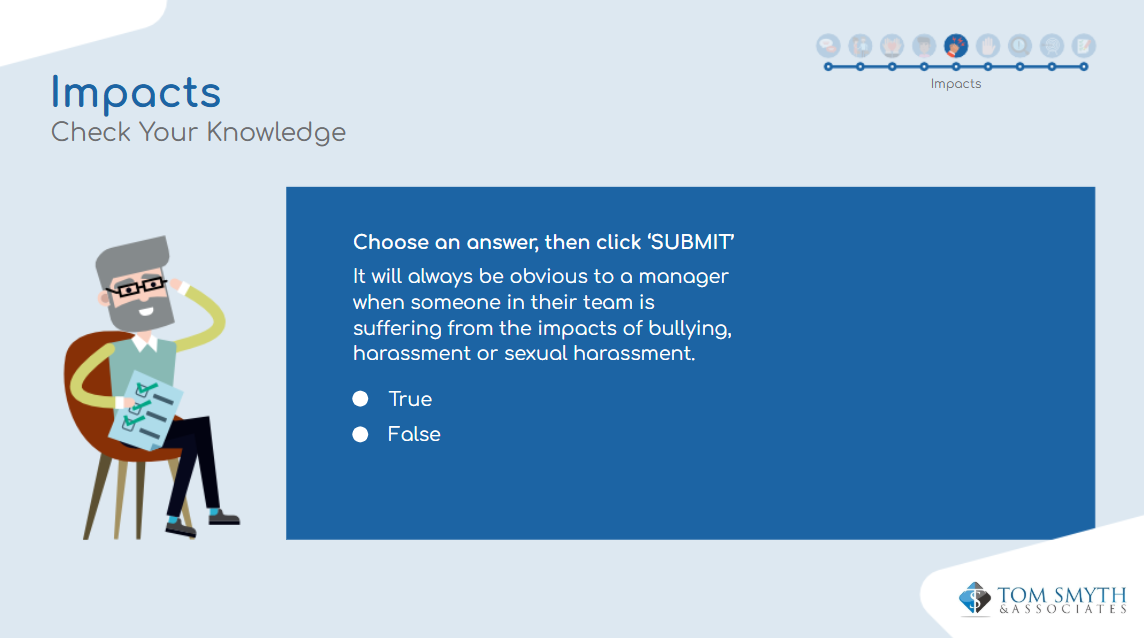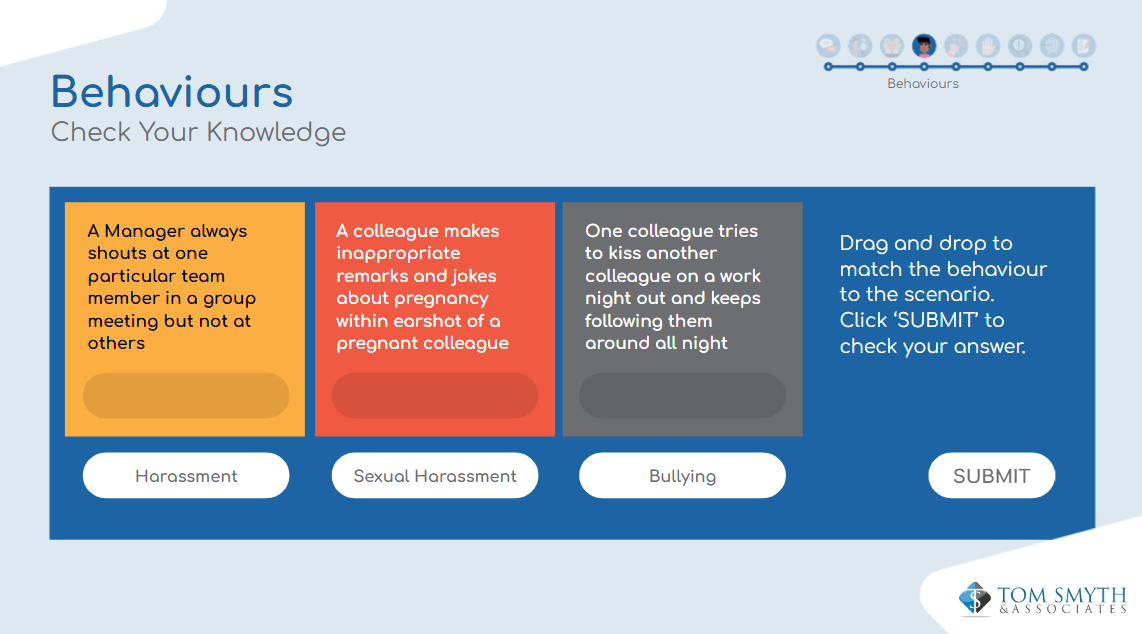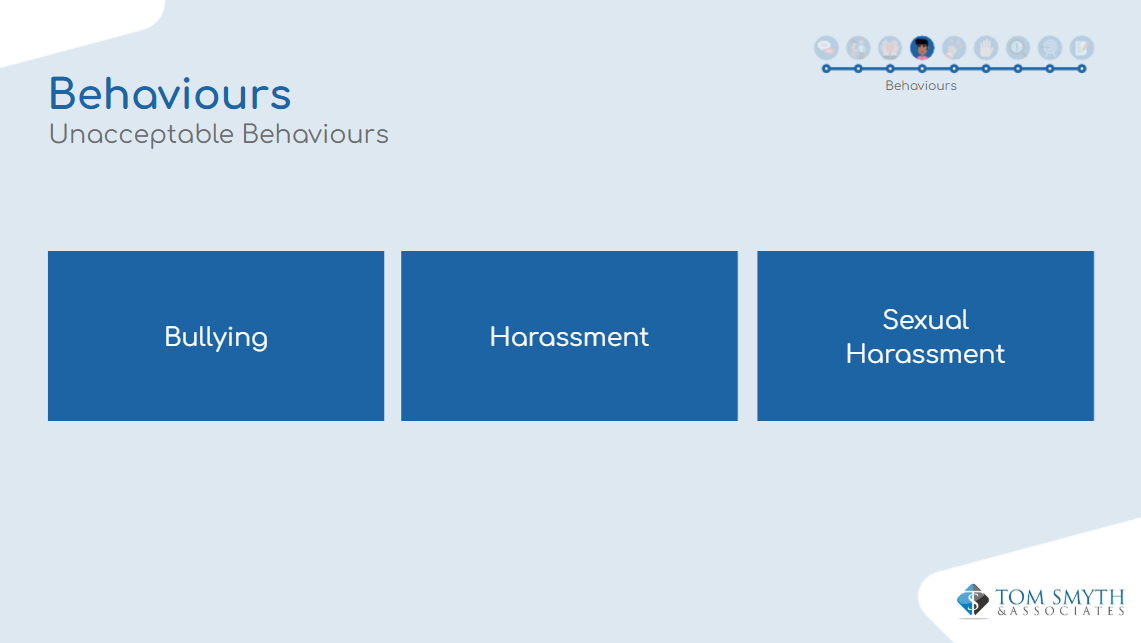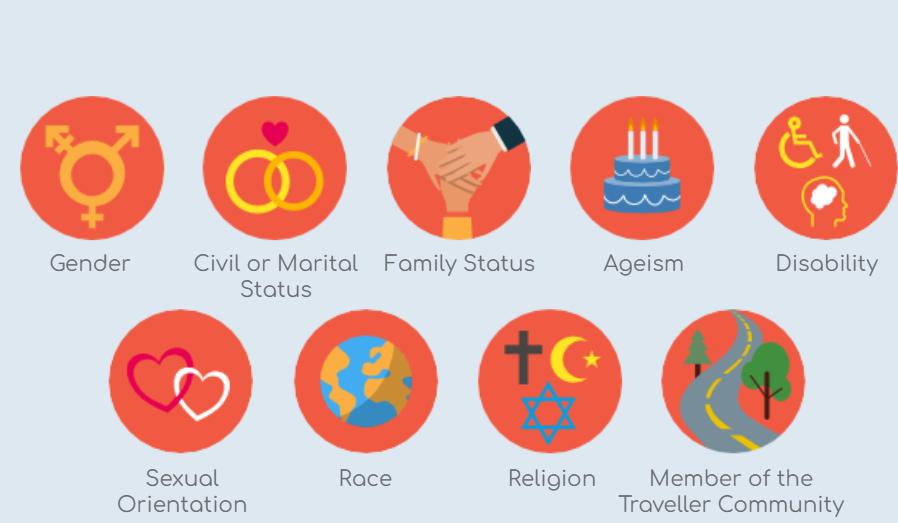What are the key areas of learning?
- Understand key concepts, including definitions of bullying, harassment, and sexual harassment.
- Explore acceptable and unacceptable behaviours with real-world examples.
- Examine the effects of unacceptable behaviours on victims, perpetrators, and the organisation.
- Learn effective measures for preventing bullying and harassment in the workplace.
- Learn how managers should manage situations involving unacceptable behaviour is provided.
- Understand both informal and formal methods for reviewing complaints and concerns and their differences.
- Become aware of the essential ‘Dos’ and ‘Don’ts’ for managing workplace conduct.
- Complete an assessment to confirm course understanding, with a downloadable certificate upon completion.
Who is this course for?
This course is for managers, team leaders, and supervisors responsible for fostering a respectful workplace environment and addressing issues related to bullying, harassment, and misconduct.
Return on Investment:
- Ensure managers understand their responsibility to uphold a workplace culture of dignity and respect, fostering a positive and inclusive environment.
- Equip managers with the knowledge to identify and address inappropriate behaviours like harassment, bullying, and sexual harassment, reducing workplace conflicts.
- Strengthen managerial skills in setting standards for fairness and respect, ensuring these values are consistently upheld by their teams.
- Provide insights into power dynamics and control within workplace relationships, enabling managers to navigate their roles responsibly and ethically.
- Promote proactive management strategies to prevent issues before they escalate, leading to a healthier, more productive work environment.
- Foster a culture of trust and mutual respect, improving employee engagement and overall organisational performance.
- Reduce legal risks and potential liabilities by ensuring all employees are treated fairly and protected from harassment, safeguarding the organisation’s reputation.


